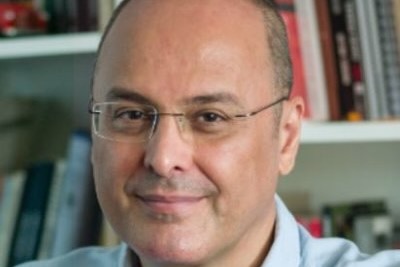(BIANET/IFEX) – On 25 February 2008, hearings were held in the murder case of journalist Hrant Dink and in the separate case of three employees of Zirve Publications, also known as the “Malatya murders”. The future of Turkey’s democracy will be determined by the extent to which the shady connections in these murders are able […]
(BIANET/IFEX) – On 25 February 2008, hearings were held in the murder case of journalist Hrant Dink and in the separate case of three employees of Zirve Publications, also known as the “Malatya murders”. The future of Turkey’s democracy will be determined by the extent to which the shady connections in these murders are able to emerge.
On the morning of 25 February, a group of around 500 people gathered in Besiktas, central Istanbul, to demand justice in the Hrant Dink murder trial.
Journalist Dink, editor of the weekly Turkish-Armenian “Agos” newspaper, was shot dead on 19 January 2007. While the suspected gunman and many other young men belonging to nationalist circles in Trabzon on the Black Sea are on trial, it is widely believed that the main protagonists in the case are still at large.
There has been evidence of gross negligence by the Trabzon and Istanbul police, but the investigation of many officers has been obstructed, and the trials of junior officers in Trabzon and Samsun have been kept separate from the main murder trial in Istanbul.
At 11:00 a.m. (local time) on 25 February, the protesters, who were carrying placards saying “For Hrant, for Justice”, released a press statement, read by singer Sevval Sam.
Sam pointed out that a hearing on the “Malatya murders” was also being held that day. In Malatya, three employees of a Christian publication house were brutally murdered in April 2006. German citizen Tilman Ekkehart Geske, as well as Turkish citizens Necati Aydin and Ugur Yüksel, were working for Zirve Publications in Malatya. They are assumed to have been killed by five young men with ultra-nationalist connections, four of whom were caught at the crime scene, and one of whom jumped out of a window of the publication house’s building.
As in the Dink case, there are murky connections linking the crime with nationalist circles and security forces, and, similarly, evidence has been tampered with.
Sam said, “These trials are a question of honour for our country.” As well as calling for the Samsun, Trabzon and Istanbul trials to be linked in the Dink case, Sam also said: “Turkey’s future will be brightened with justice. It will be brightened if Hrant’s murderers, those instigating the murder and those protecting them, are punished in an exemplary manner. It will be brightened if the number of people demanding justice increases and if authorities listen to their voices.”
At the third hearing in the Malatya murder trial, the joint attorneys complained that they had, illegally, been refused access to documents held in safekeeping at the court. In addition, their repeated demands for a recording of the court hearings were refused. When the Istanbul court decided to record the Dink murder case hearings, they again applied for the same procedure to be applied in Malatya, but the court refused. The lawyers have thus demanded a change of judge.
The lawyers also demanded that the large amount of information on Christians and Christianity, as well as personal information collected on the murder victims, be removed from the files, but this request was refused. The joint attorneys previously argued that the prosecution had displayed more interest in accusing the men of being missionaries than investigating the murder suspects.
The Malatya murder trial hearing has been postponed to 17 March and the case file will be sent to the Diyarbakir Heavy Penal Court for examination.


